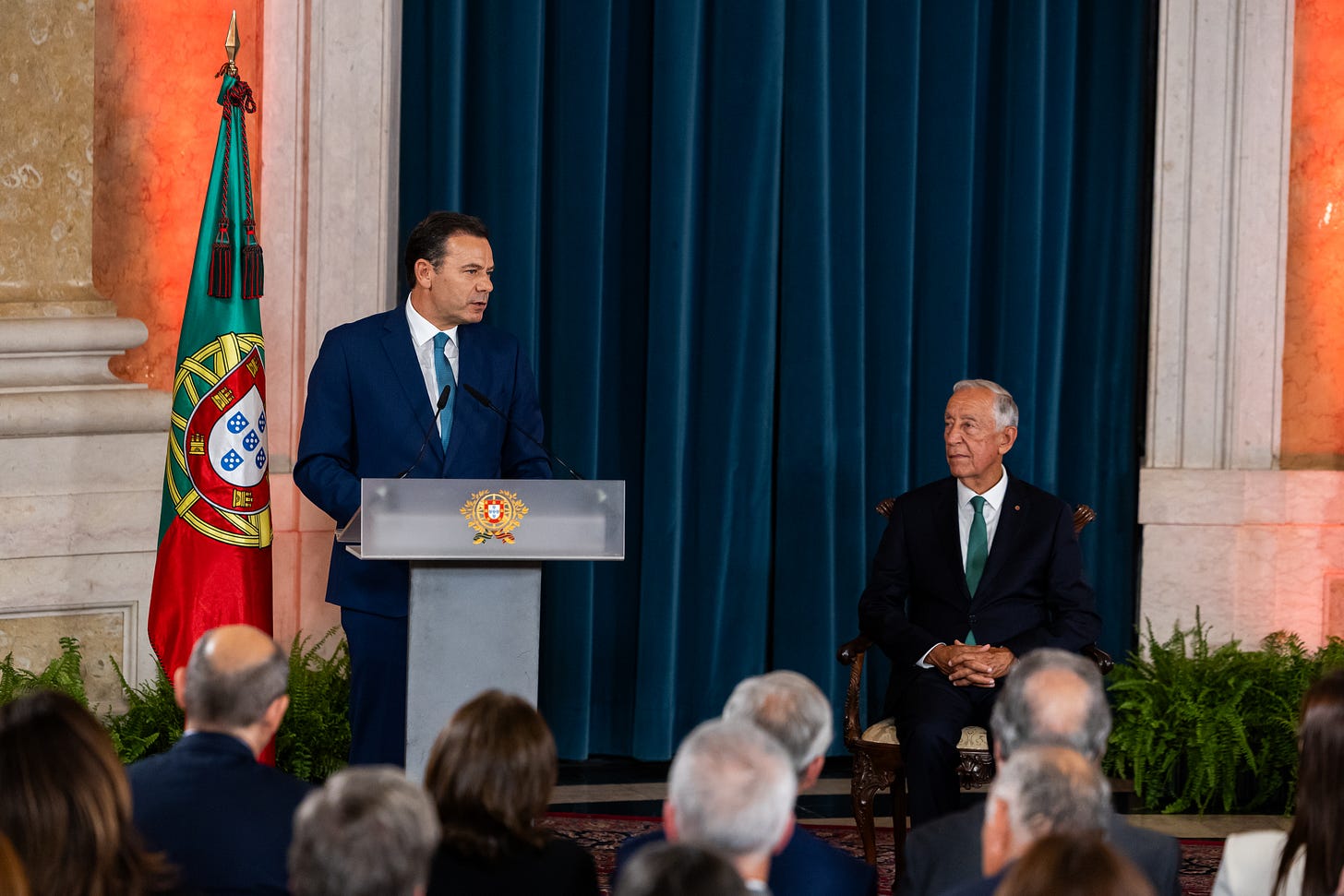Government approves its new program
Minister of the Presidency António Leitão Amaro described the program as “ambitious” and “transformative,” outlining ten strategic priorities that aim to modernize and reposition Portugal among Europe

The Portuguese government approved its new program on Thursday, announcing it will formally submit the document to Parliament this Saturday, one day ahead of the official deadline.
Presenting the program at a post-Cabinet press conference, Minister of the Presidency António Leitão Amaro described it as an “ambitious and transformative agenda,” structured around ten key reform priorities.
The proposal will be debated on June 17 and 18, with support from Chega and the Socialist Party (PS) securing its approval, despite a rejection motion filed by the Portuguese Communist Party (PCP).
According to the minister, the plan represents a “new and innovative dimension” for the country’s development.
The ten priorities are:
Income and Social Justice: A focus on rewarding work and savings, including tax reductions (IRS), wage improvements, and revised social support to ensure employment is more beneficial than dependency.
State Reform and Bureaucracy Reduction: Simplifying administrative processes, digitizing services, reorganizing public administration, and introducing a merit-based human resources policy.
Economic Growth and Added Value: Reducing corporate tax (IRC), simplifying tax codes, reforming insolvency laws and capital instruments, and modernizing labor legislation—all to encourage productivity and fair work conditions.
Regulated and Humanist Immigration: Enhancing entry controls, revising nationality laws, reinforcing immigration units within police forces, and resolving pending legal cases.
Essential Public Services: Ensuring quality access to education, healthcare, and mobility through cooperation between public, private, and social sectors.
Public Security and Justice: Strengthening police presence, accelerating judicial processes (especially for serious crimes), and continuing the anti-corruption agenda started by the previous government.
Housing Crisis Response: Increasing housing supply and support for families. The plan includes building 59,000 new homes, boosting cooperative housing, revising rental laws, and funding municipal housing programs.
Strategic Infrastructure: Projects such as the new Luís de Camões airport, continued TAP privatization, expansion of high-speed rail, and strengthening the national energy grid.
National Water Strategy: Addressing regional shortages through infrastructure investments, efficient consumption, and climate resilience in water management.
Defense Investment Plan: A strategic initiative to boost national defense capabilities and industrial output, creating jobs and economic growth through domestic production and innovation.
Leitão Amaro emphasized the government's mission to “transform the country for the better” and solve citizens’ pressing issues through a forward-looking and results-driven agenda.
Leitão Amaro also noted that the program includes proposals from various parties, though he did not specify which or how many.
While the Portuguese Communist Party (PCP) has already submitted a motion of rejection, it is expected to fail, as both Chega and the Socialist Party (PS) have pledged to back the program, ensuring parliamentary approval for Prime Minister Luís Montenegro’s second government.



